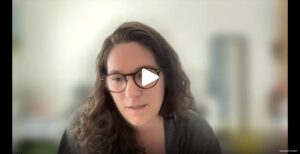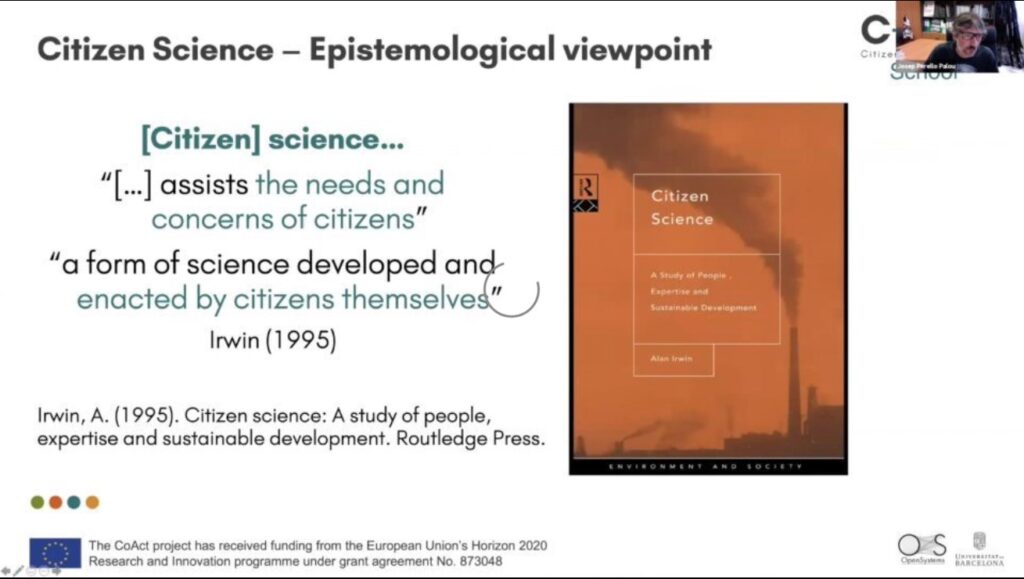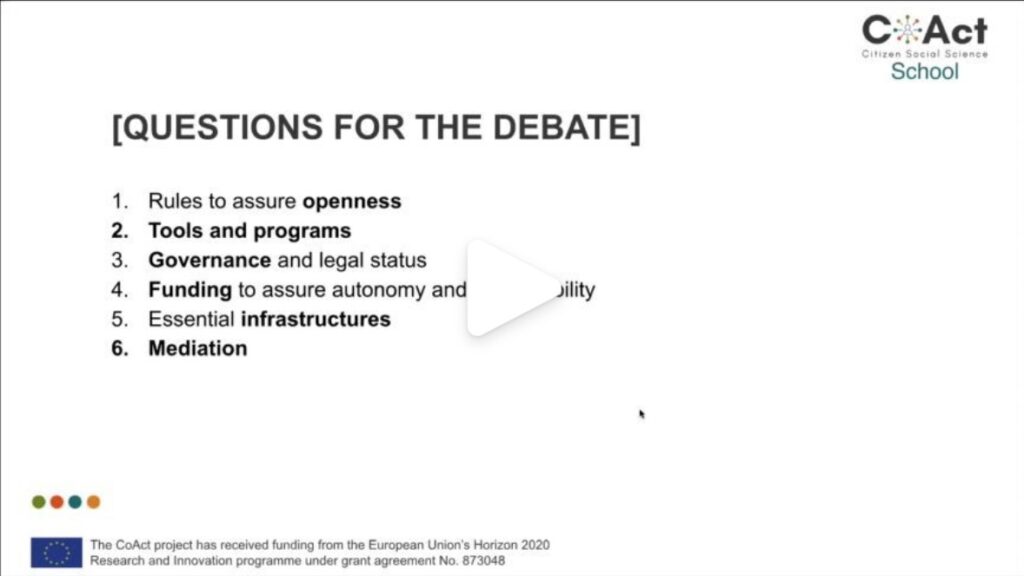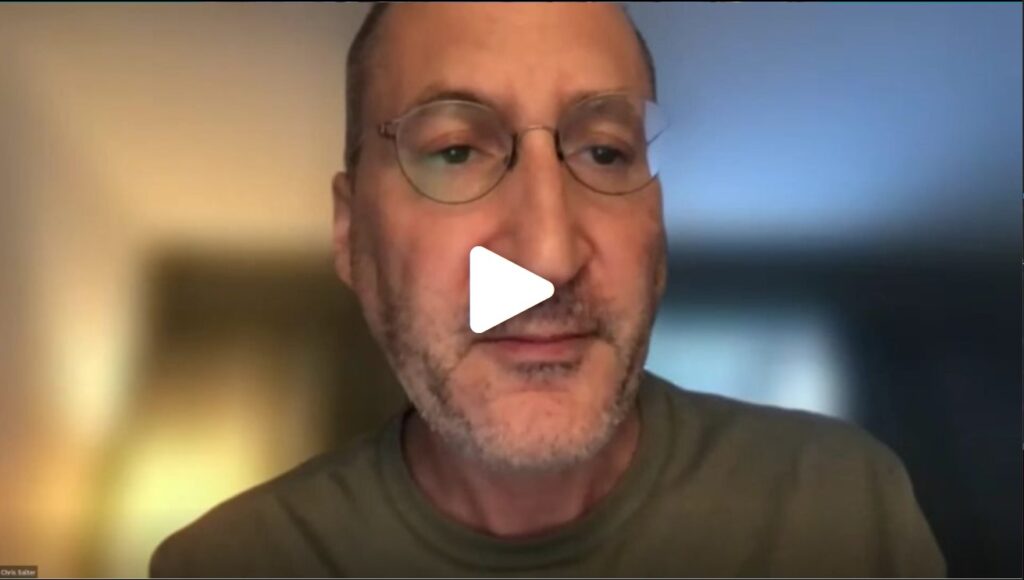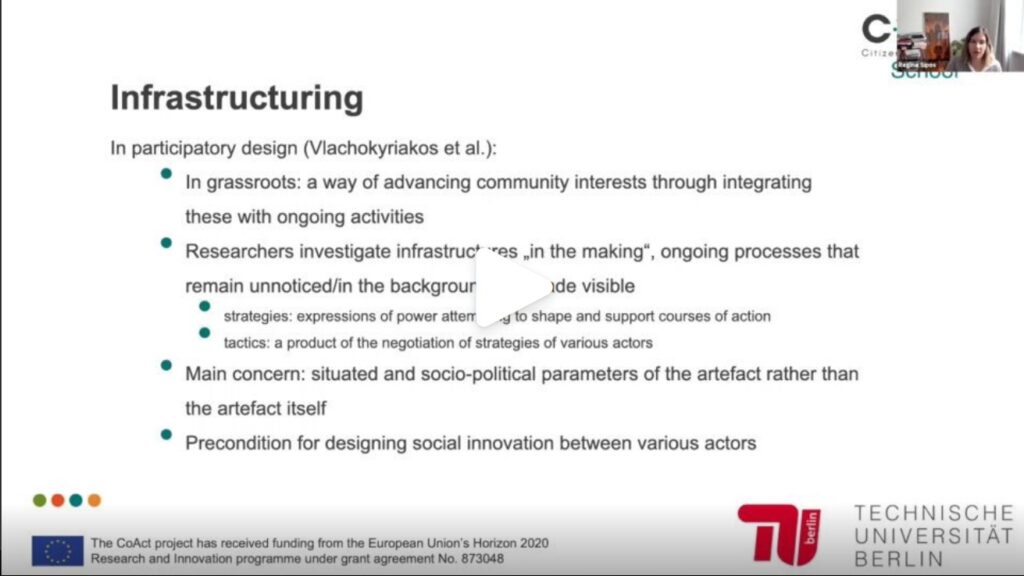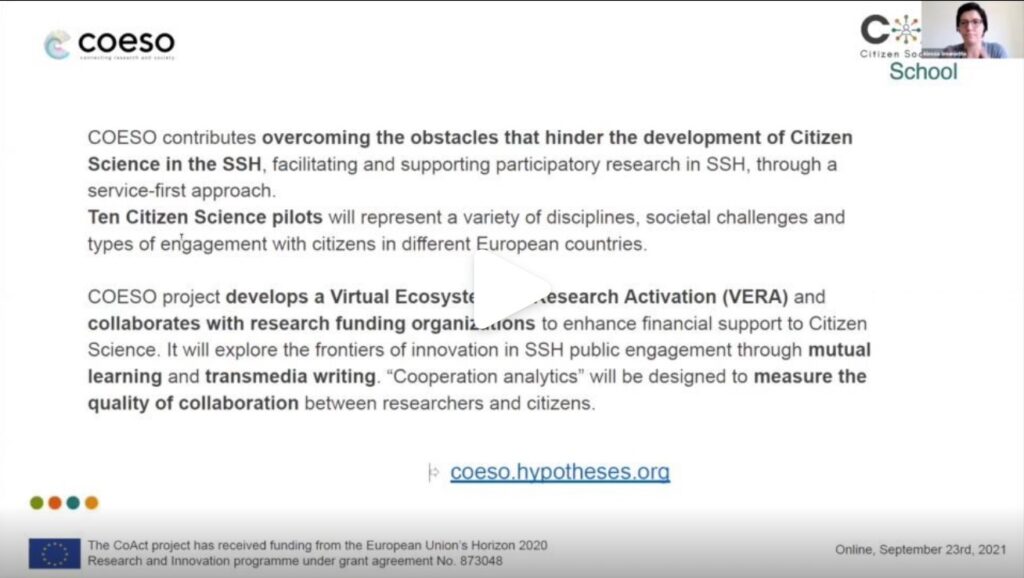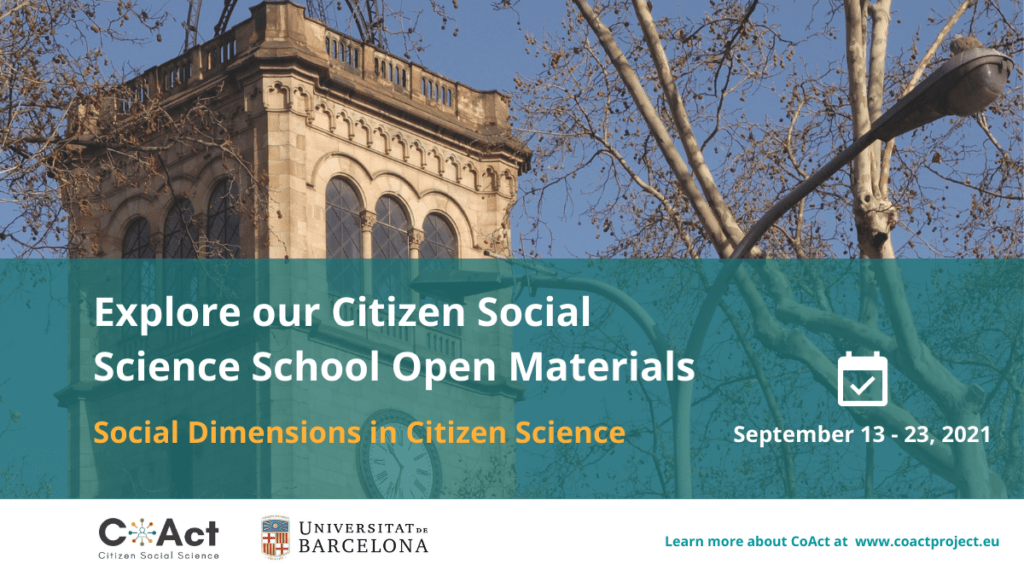
What was the CSS school´s aim?
From September 13-23, 2021, CoAct organised it´s Citizen Social Science School. The main goal was to offer academic researchers a common space and a shared time to reflect, discuss, learn, and receive practical guidelines to explore social dimensions behind a wide set of Citizen Science practices related to social issues and when involving groups and persons in a vulnerable situation acting as co-researchers.
Who joined and what was done?
— participants from around the globe were selected to join our summer school. There are many ways to enhance the social dimension of Citizen Science, but the school focused on the possibilities of running participatory research involving groups in vulnerable situations that act as co-researchers. School participants had the opportunity to discuss, identify and develop skills to conduct a Citizen Social Science project. The school explored aspects and dimensions to be considered and provided tools and resources. It introduced participants to visions, disciplines and methods helping to enhance the social dimension in the Citizen Science set of practices. The school also critically discussed challenges and difficulties in practical terms and based on specific international experiences (Spain, Austria, and Argentina among others).
What were the learning outcomes?
- Review of transdisciplinary aspects in the context of Citizen Social Science (e.g. Open Science, Ethical Research, Digital participation, Co-evaluation and Policy Impact)
- Practical examples of Citizen Social Science practices where groups in a vulnerable situation are acting as co-researchers
- Portfolio of collaborative participatory research models (interdisciplinary, intersectoral and international)
- Practical tools to maximize success and minimize challenges of Citizen Social Science
- Development of an international network of peers
- Strategies to be inclusive in a citizen science project
Based on our learning outcomes, we developed a rich program for the school participants that included seminars with round tables, workshops, mentoring and working sessions. To learn more about what these activities were about and to have a full overview of the school´s program take a look to our school´s guide below.
School materials
All presentations and contents of the school are open under a Creative Commons license: Attribution-ShareAlike 4.0 International (CC BY-SA 4.0). We are glad that you are here exploring them. In the next sections, you´ll find the links to the ppts and videos for each session.
Seminar with round tables
Our 5 seminars with round tables encouraged discussion, reflection, and debate. They focused on several aspects which might not be the general rule in the academic world. Selected topics included citizen labs, makers’ world, knowledge commons and public or collective experiments. These topics sparked broader discussions involving many other relevant topics via face-to-face exchange of visions and perspectives.
Workshops
Our 7 workshops offered a very practical basis, which in most cases was grounded on practical experience raised by CoAct partners. Two workshops focused particularly on our relationship with data in a playful manner and practical aspects related to open science, which we consider important aspects in the discussion on the social dimensions of Citizen Science.
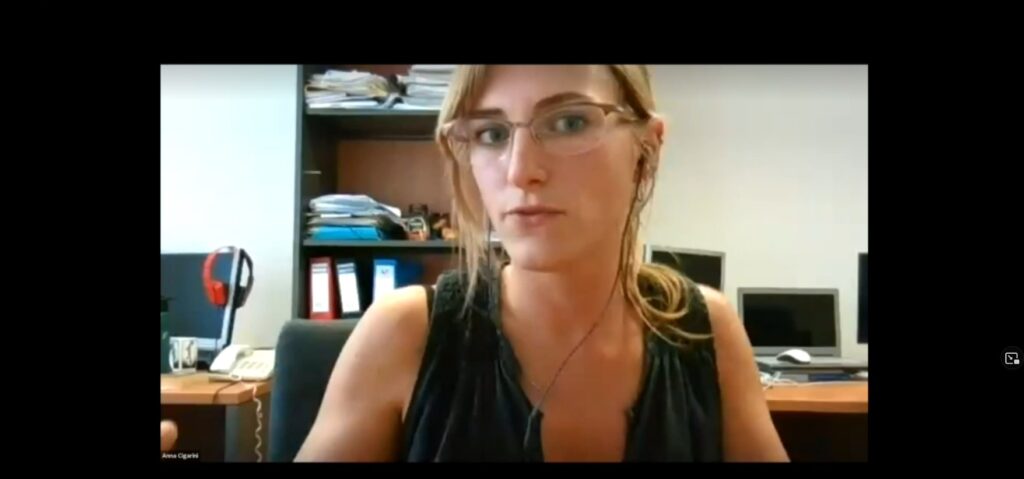
Presentation:
ACigarini, IBonhoure, FPeter
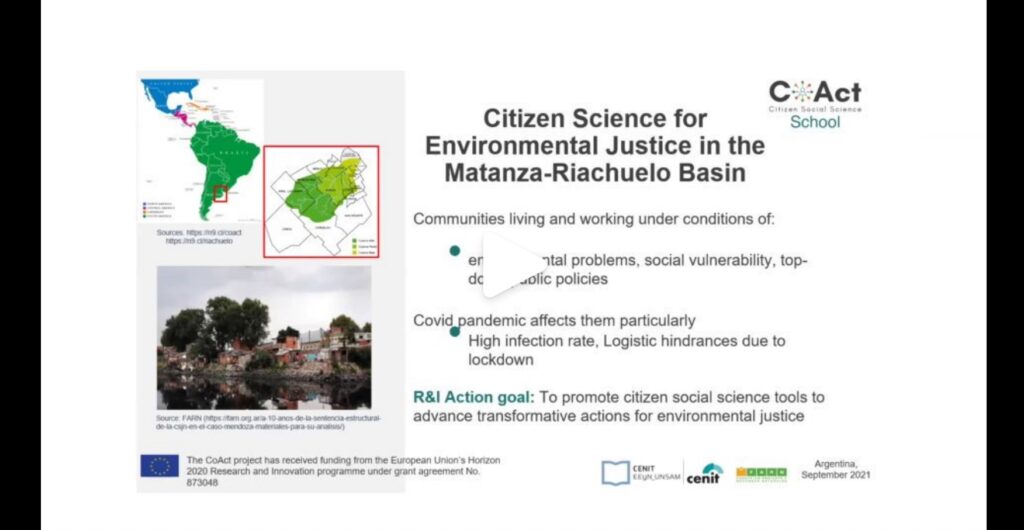
Presentation:
VArza, GActis, LCastro, MVelarde
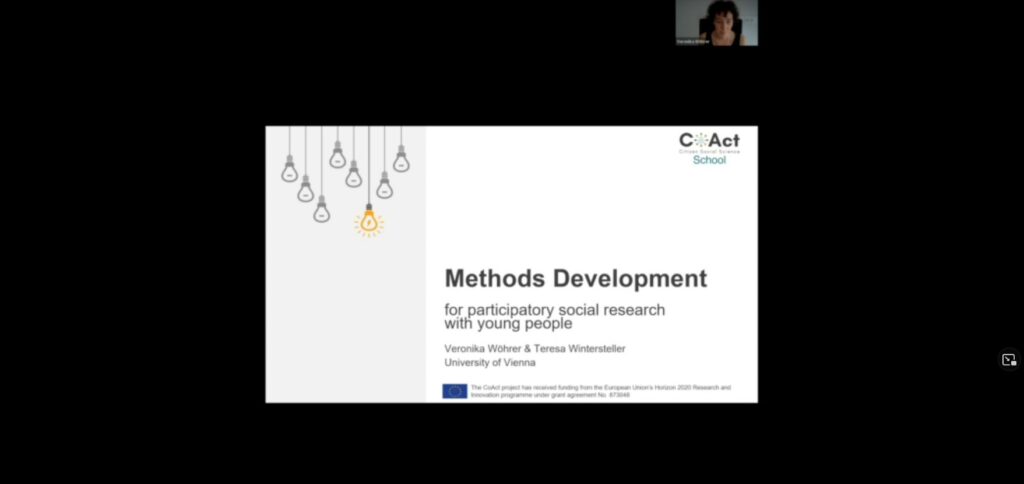
Presentation:
VWoehrer, TWintersteller
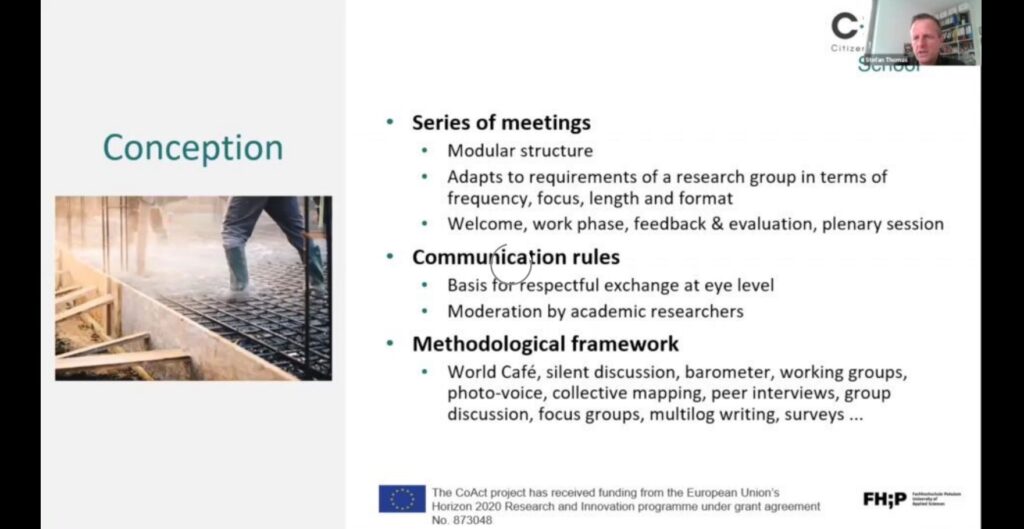
Presentention:
SThomas
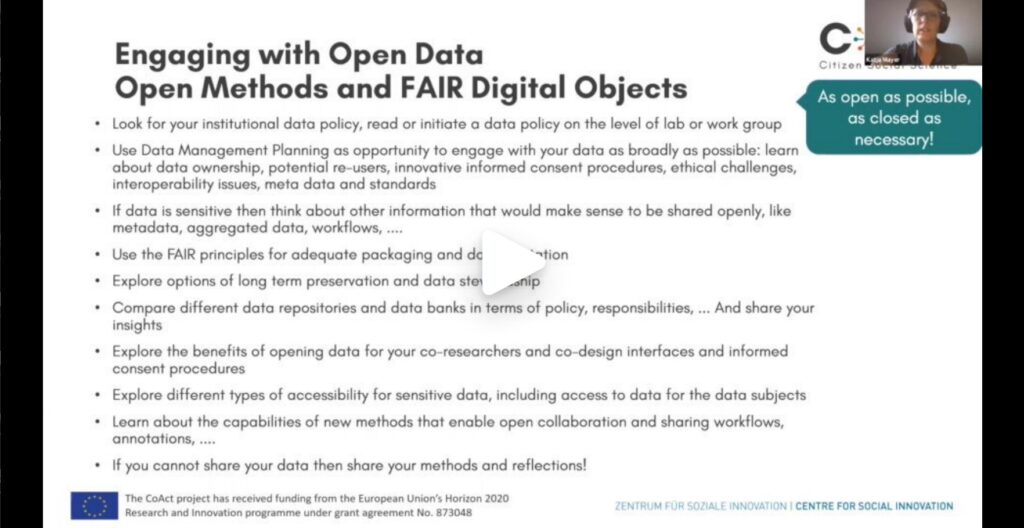
Presentention:
ILabastida (1/2) • ILabastida (2/2) • KMayer
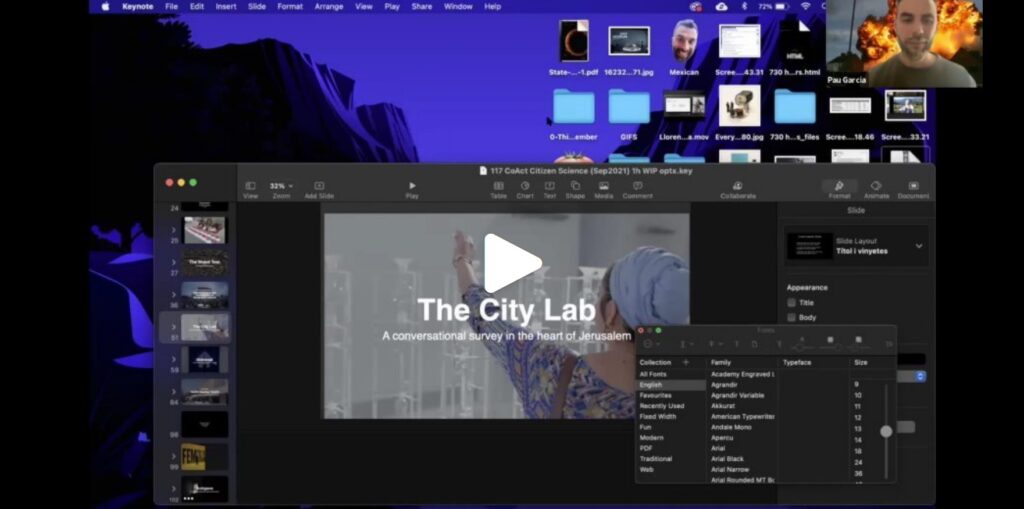
Presentention:
PGarcia, NSantaloria
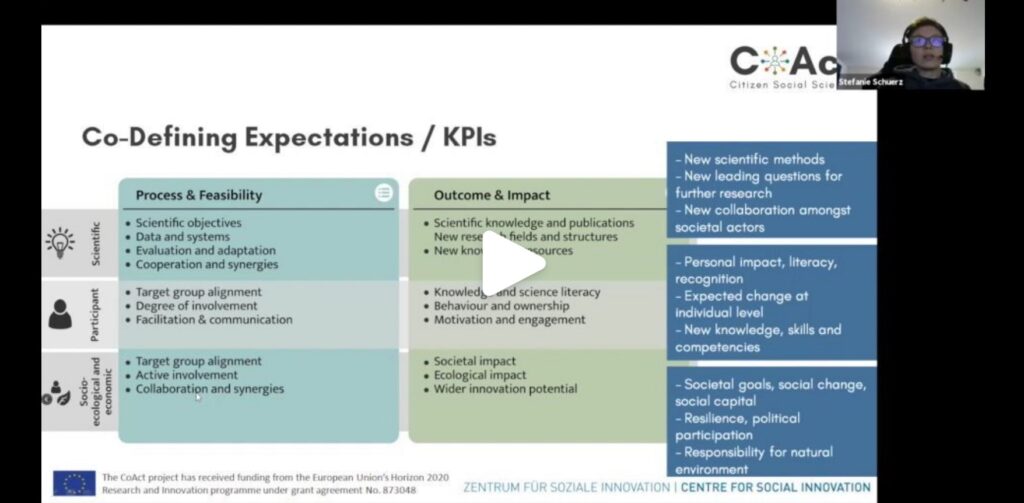
Presentention:
KMayer, SSchuerz
Final presentation
Each group presented their own perspective to the social dimensions in the R&I cycle and in relation to SDG. The effort contributes to the CoAct exploration on the enhancement of social dimensions in the Citizen Science R&I cycle. Presentations were based on the different exercises developed in mentoring and work with small groups sessions. Presentations also enhanced collective discussion.
